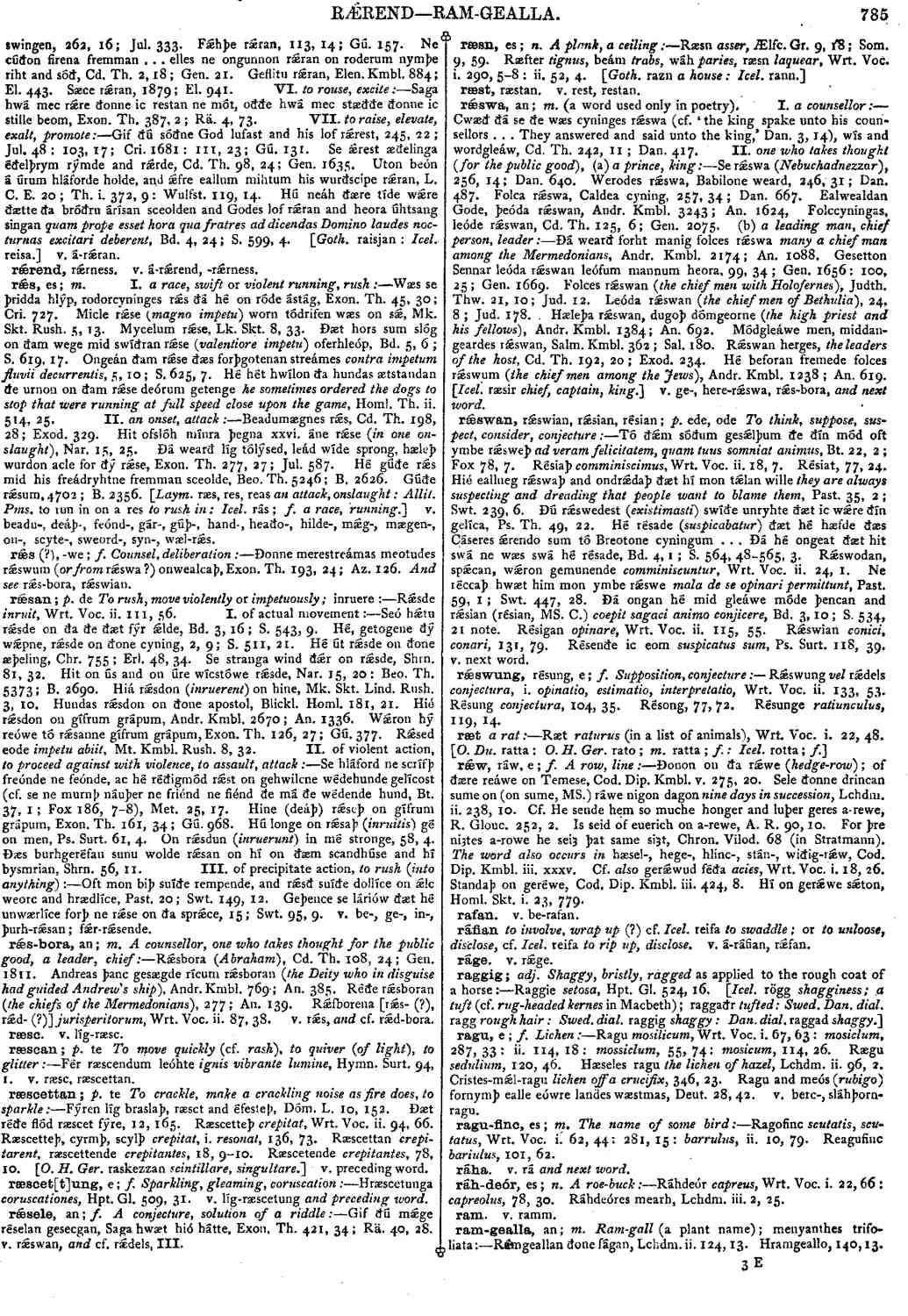rǽswan
- verb [ weak ]
-
Tó ðǽm sóðum gesǽlþum ðe ðín mód oft ymbe rǽsweþ
ad veram felicitatem, quam tuus somniat animus,
- Bt. 22, 2; Fox 78, 7.
-
Résiaþ
comminiscimus,
- Wrt. Voc. ii. 18, 7.
-
Résiat,
- 77, 24.
-
Hié eallneg rǽswaþ and ondrǽdaþ ðæt hí mon tǽlan wille
they are always suspecting and dreading that people want to blame them,
- Past. 35, 2; Swt. 239, 6.
-
Ðú rǽswedest (
existimasti
) swíðe unryhte ðæt ic wǽre ðín gelíca,- Ps. Th. 49, 22.
-
Hé résade (
suspicabatur
) ðæt hé hæfde ðæs Cáseres ǽrendo sum tó Breotone cyningum ... Ðá hé ongeat ðæt hit swá ne wæs swá hé résade,- Bd. 4, 1; S. 564, 48-,565. 3.
-
Rǽswodan, spǽcan, wǽron gemunende
comminiscuntur,
- Wrt. Voc. ii. 24, 1.
-
Ne réccaþ hwæt him mon ymbe rǽswe
mala de se opinari permittunt,
- Past. 59, 1; Swt. 447, 28.
-
Ðá ongan hé mid gleáwe móde þencan and rǽsian (résian, MS. C.) coepit sagaci animo conjicere, Bd. 3, 10; S. 534, 21 note. Résigan
opinare,
- Wrt. Voc. ii. 115. 55.
-
Rǽswian
conici, conari,
- 131, 79.
-
Résenðe ic eom
suspicatus sum,
- Ps. Surt. 118, 39. v. next word.
Bosworth, Joseph. “rǽswan.” In An Anglo-Saxon Dictionary Online, edited by Thomas Northcote Toller, Christ Sean, and Ondřej Tichy. Prague: Faculty of Arts, Charles University, 2014. https://bosworthtoller.com/25549.
Checked: 0